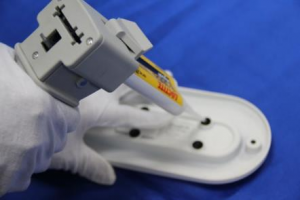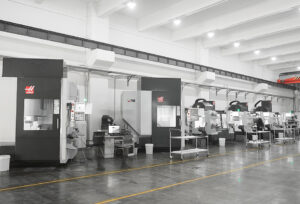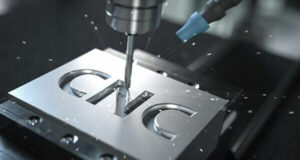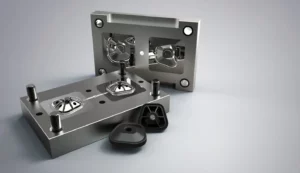Tooling is inarguably one of the most significant cost drivers in any die casting or injection molding project. Tooling cost goes a long way in determining the project’s viability, often accounting for the lion share of the project budget. So how much precisely will your project tooling cost? Well, it’s difficult to tell without having the project specificities. This is why Firstpart provides a free design-for-manufacturability analysis and free quote here for every project or inquiry. However, certain factors affect tooling cost for both injection molding and die casting operations. Here is a list of some of the factors that drive tooling costs.
1. Size
The size of the part to be molded or cast will determine the mold tool’s overall cost. Generally, larger parts will require bigger molds, and consequently, more material to make the tooling parts.
2. Complexity
Design complexity will be reflected in the mold design and tooling cost. Parts with a simple design may be achievable with simple open and close molds. Designs with more intricate geometries and part complexities will attract a higher price in making the mold tool.
3. Volume
The volume of parts to be made from the tool is usually considered before determining the appropriate tooling material. The consideration for volume is dependent on whether the tool will produce for a long time if it is a short prototype run or a mold for low-volume production.
Molds that will serve mass production (over 100,0000 parts) are often made from hardened steel tooling and are more expensive than those meant to serve low-volume production.
4. Material
Mold tooling can be made from steel and aluminum materials. As earlier noted, the material to be used depends on the tool’s lifespan and the volume of parts expected to be produced from the tool. Generally, mold tools may be fully hardened, P20 steel, or Aluminum.
Fully hardened steel material is used for applications where many parts would be manufactured over time. The material used is very abrasive and will be heat treated and quenched before tempering. The process involved in hardened steel tooling calls for a sizeable financial budget.
The P20 mold steel is very versatile. It has moderate toughness and strength and is often applied for molding projects that will produce mid-range parts. It is also suitable for production runs that will not see frequent usage.
Aluminum tools are excellent for short runs and low-volume production. It has a limited number of parts it can produce across the entire lifespan of the tool. Aluminum is cheaper than steel. The downsides of using Aluminum are lifespan, part volume, and an inability to modify or repair the tool. On the other hand, steel tooling can be repaired and modified more easily and re-worked to accommodate changes in designs.
5. Finish and detail
Designs with tight tolerances and a higher level of precision may require some input from CNC machining that may further up the costs. The material finish, desired surface texture, and part smoothness are also crucial considerations for determining the price of a die casting or injection molding tool.
6. Cavity number
The cavity number refers to the number of components produced in one run of the injection molding process or a die-casting cycle. A mold tooling required to make only one component per cycle will cost less than multi-cavity, and family mold tools that can make several related parts in one process.
7. Shipping costs
Depending on whether you are manufacturing your mold tooling onshore or offshore, your tooling may attract some shipping and delivery costs. Some companies, like Firstpart, handles global delivery in as fast as seven days. If you choose to handle your tool shipment, you should add the overall cost to deliver your mold tool to your doorstep to the cost of making the mold.
Firstpart Die Casting and Injection Molding Services
Firstpart can help you optimize your production, design, budget and supply chain to choose what is best for you. Our experience in metal die casting makes us one of the most competent metal casters, using a wide array of methods to ensure high-quality, defect-free parts every time. We also boast of excellence, experience and diversity in plastic injection molding for making mass production volumes of various applications
Depending on your project, we can help you make low-cost or hardened steel tooling around budget, material and volume considerations.
Contact us to get in touch with one of our experts and receive free quotes, design and finish suggestions on your next project right away! Work with us and allow us to manage your die casting and injection molding needs and help you transition from rock solid prototypes to excellently finished die-casted products.






